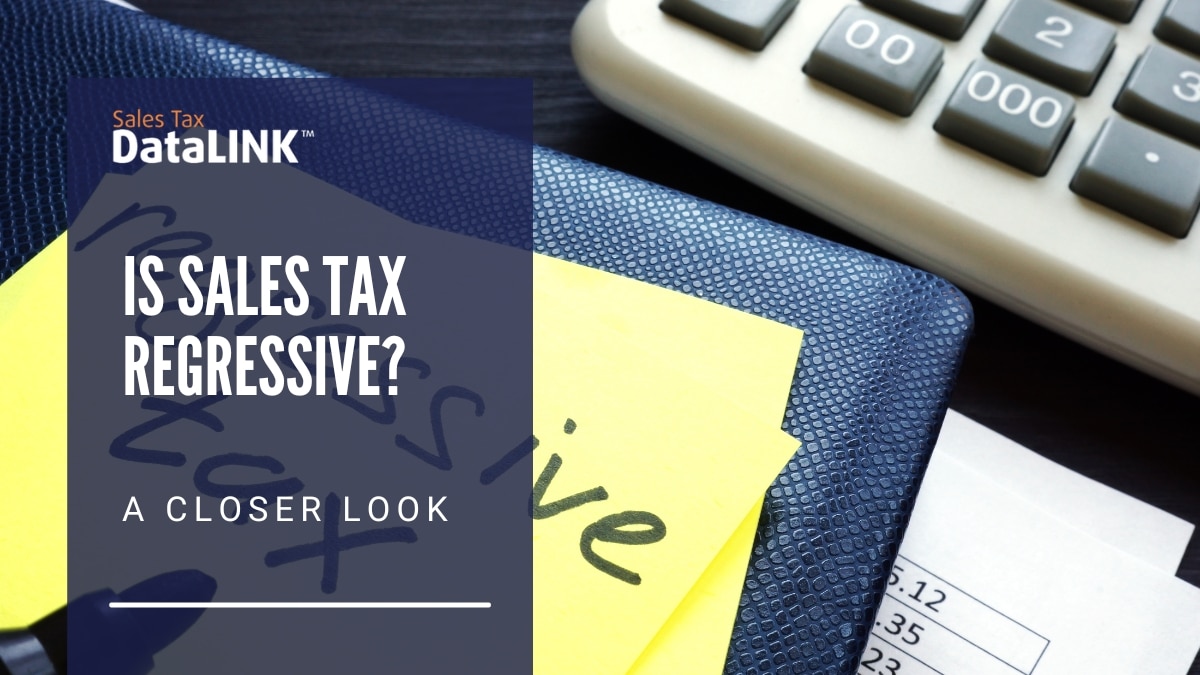Is Sales Tax Regressive?
A regressive tax is one that is more of a burden on people with lower incomes than on those with higher incomes. A progressive tax is the opposite: people with higher incomes pay more than those with lower incomes. Income taxes generally require more from people with higher incomes (though not always). Sales taxes, however, are often seen as a regressive tax. John, who earns $1000 a week, buys a $10.00 book and pays .45 in sales tax — .0045% of his income for the week goes to sales tax. Jim, who earns $100 a week, buys that $10.00 book and pays .45 in sales tax — .045% of his income. Jim is paying ten times as much of his income as John.
In the real world, a guy who earns $100 a week probably won’t pay $10.00 for a book most weeks, and John would probably pay quite a bit more in sales taxes over the course of a week than Jim would. But, unlike income taxes and property taxes, sales taxes apply equally to everyone, regardless of their income. There are a number of things that taxing jurisdictions can do to make sales tax less regressive. For example, states might make essentials such as food, medicine, and clothing exempt from sales taxes. This is one of the sources of complexity in sales tax systems.
The famous example of the bagel which is not taxable until it’s sliced is a side effect of the distinction between essential groceries and luxurious prepared meals. So are many of the other examples of comical sales tax distinctions. As legal cases are brought or industries lobby for changes, an initially logical and sensible seeming rule can become unrecognizable. It turns out that it’s hard to delineate what’s essential and what’s a luxury. We might start by agreeing that clothes are essential and jewelry is a luxury. Soon enough, the case of wedding rings will come under scrutiny, then wristwatches, then fur coats, and then sports gear. States might also balance sales taxes with property and income taxes to try to index that tax burden to income.
While most states make this effort, it appears that they do not succeed. The Institute on Taxation and Economic Policy conducted a review of the tax policies of all 50 states and concluded that every state’s total tax structure — including income, sales, excise, and use taxes — is regressive. But is it just in the nature of sales tax to be regressive? Forbes ran a column that suggests that sales taxes are not intrinsically regressive. People with a higher income who spend less will pay less in sales taxes, thus being rewarded for saving or investing. They will not be punished for their productivity or luck in being born into a wealthy family, or whatever actions have brought them their higher income. People who spend more, however, will pay more in taxes. Clearly, there’s a philosophical component to the discussion. The bottom line, sales tax is complicated — and there can be good reasons for that. SalesTaxDataLINK can help.




